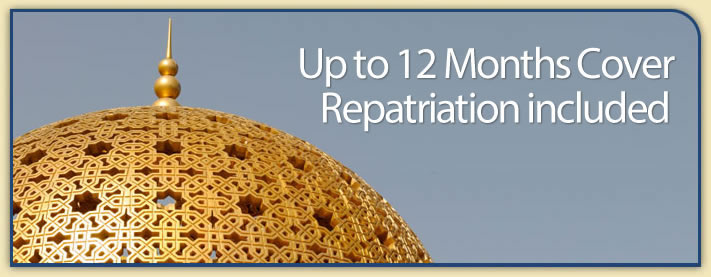Country Guide • Turkey

Turkey is located on the Anatolian Peninsula in between West Asia and Eastern Thrace. It is bound by the Agean Sea to the west, Bulgaria and the Black Sea to the north, Georgia to the north east, Armenia and Iran to the east and Iraq, Syria and the Mediterranean Sea to the south.
| Official Name | Republic of Turkey |
|---|---|
| Area | 779,452km² (300,948mile²) |
| Population | 68,109,469 |
| Continent | Middle East, Europe and Asia. The smaller north western portion (Thrace) is part of Europe, while the larger portion (Anatolia) is part of Asia |
| Population per mile² | 226 |
| Capital City | Ankara |
| Religions | 99% Sunni Muslims while the remainder are Orthodox Christians |
| Language | Turkish (official), Kurdish, Arabic, Armenian, Greek |
| Government | Republic |
| Currency | Turkish Lira |
| GDP | $468 billion |
| GDP per Head | $7,000 |
| Natural Resources | Antimony, coal, chromium, mercury, copper, borate, sulfur, iron ore, arable land, hydropower |
| Land Use | Arable Land 34.53% |
| Agriculture | Tobacco, cotton, grain, olives, sugar beets, pulse, citrus; livestock |
| Industry | Textiles, food processing, autos, mining (coal, chromite, copper, boron), steel, petroleum, construction, lumber, paper |
| Tourism | Stretching out on two continents, Turkey is a paradise where one can experience the four seasons simultaneously... Whether you are fond of art, history, archeology or nature, you will feel the happiness beyond desires and hopes during your stay in Turkey. Surrounded by the crystal clear waters of a shinning sea at four directions, Turkey generously offers her 8000km long shores before your eyes. Turkey is rich in flora and fauna. Activities are endless in this vast country |
| Natural Hazards | Very severe earthquakes, especially in northern Turkey, along an arc extending from the Sea of Marmara to Lake Van |
| Health Risks | Polio, tetanus, diphtheria, typhoid, hepatitis A and B, rabies and TB are all present in Turkey so vaccinations for all these should be considered |
| Climate | Turkey has a climate that is characterised by great extremes and wide temperature variations between regions and seasons due to the size of the country. The narrow coast land and mountain slopes to the north, west and south have wetter and milder winters than the interior as well as moderately hot summers. The interior plateau winters are cold with frost while the summers are hot. Eastern Turkey has bitter cold winters and hot summers. Average annual rainfall in Istanbul is 28 inches while average temperature ranges in Ankara are from -4 to 4°C in January to 15 to 31°C in August |
| Time | GMT/UTC+1 hour |
| National Days | October 29 |
| Visas | UK, Australian, and US citizens, as well as those from Austria, Canada, Israel, Ireland, Italy, Portugal and Spain, do need visas. You may obtain a multiple entry visitor's visa valid for 90 days at the port of entry on payment of ten pounds sterling, cash (Scottish currency is not accepted). Citizens of New Zealand, Japan, South Africa and most of the countries of Western Europe, need only a valid passport for stays of up to 3 months |
| British Embassy | Embassy Details |
Information Only
The content above is for information purposes only and we have tried to ensure that the information is as accurate as possible. We cannot accept any responsibility for any inconvenience, loss or injury as a result of the information above. You should always check and verify any critical information like visas, health and safety and customs with the relevant authorities before you travel since information can change at any time.



